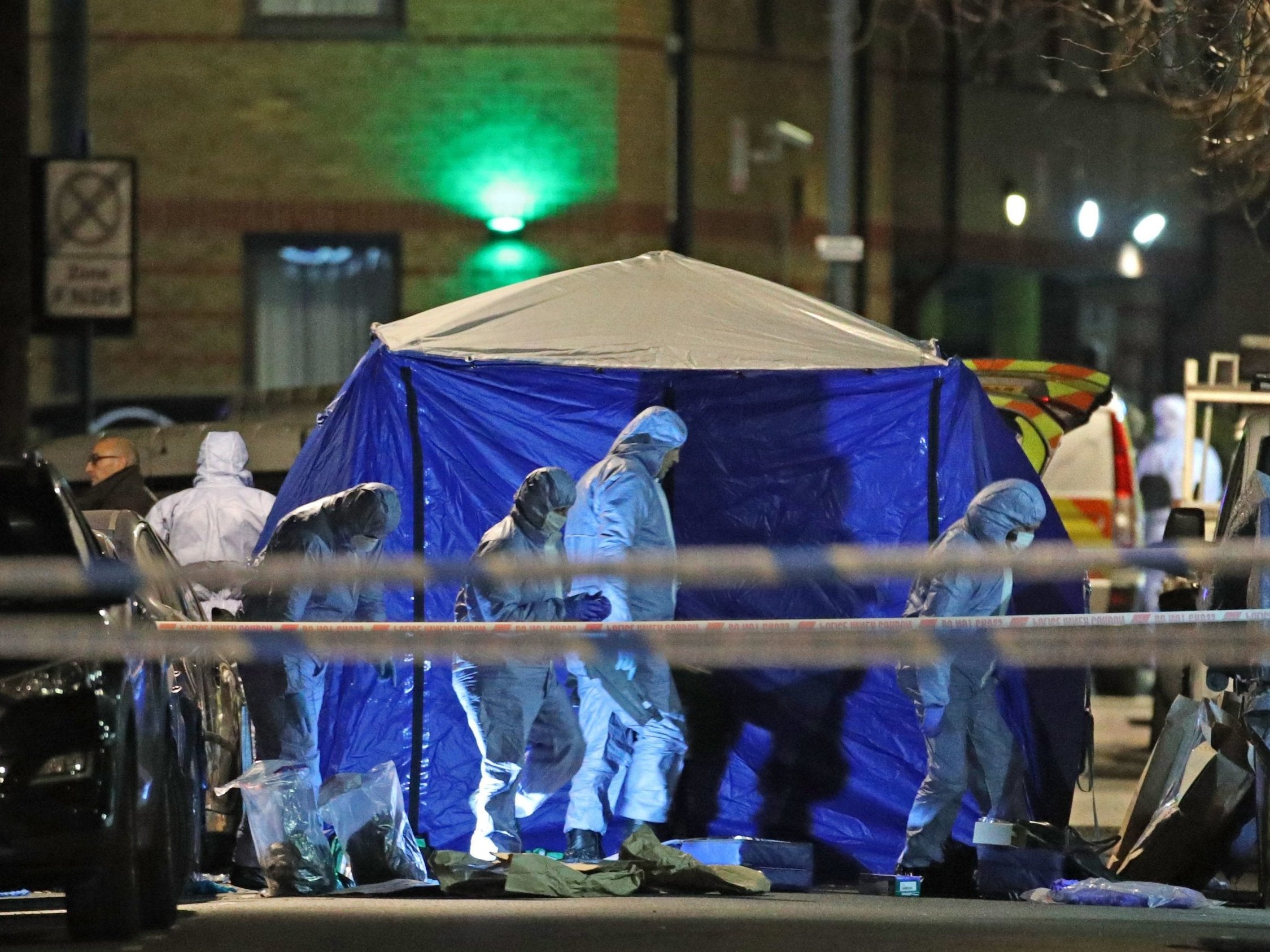Knife crime epidemic adds to over 50% rise in teen stabbings needing hospital care
‘You never forget the sound a mother makes when given the devastating news that her child has died,’ says trauma surgeon Martin Griffiths working to end knife crime

Your support helps us to tell the story
From reproductive rights to climate change to Big Tech, The Independent is on the ground when the story is developing. Whether it's investigating the financials of Elon Musk's pro-Trump PAC or producing our latest documentary, 'The A Word', which shines a light on the American women fighting for reproductive rights, we know how important it is to parse out the facts from the messaging.
At such a critical moment in US history, we need reporters on the ground. Your donation allows us to keep sending journalists to speak to both sides of the story.
The Independent is trusted by Americans across the entire political spectrum. And unlike many other quality news outlets, we choose not to lock Americans out of our reporting and analysis with paywalls. We believe quality journalism should be available to everyone, paid for by those who can afford it.
Your support makes all the difference.NHS hospitals treated more than 1,000 stabbings, glassings and other blade attacks on teenagers last year – a rise of more than 50 per cent per cent since 2013, the health service has revealed.
Last year there were 1,012 admissions for young people between the age of 10 and 19 as a result of knife attacks and assaults with sharp weapons. This is up from 656 assaults in 2012/13, and the numbers are rising, health chiefs warned.
NHS England said the true number of attacks is likely to be even higher because the figures don’t record those who were treated in A&E or urgent care but weren’t admitted.
The news comes just days after the Office for National Statistics revealed fatal stabbings in England and Wales have reached their highest level in more than 70 years.
Trauma chiefs said the rising tide of knife crime is “destroying lives” and heaping pressure on A&E departments, as they called for a crack down on knife sales.
Martin Griffiths, a consultant trauma surgeon at The Royal London Hospital, is on the front line and said the trust “sees on average two stabbings every day”.
“But it doesn’t stop with us,” he said. “A stabbing has relentless repercussions that stretch far beyond the victim.
“You never forget the sound a mother makes when given the devastating news that her child has died. I see the wasted opportunities of young people stuck on hospital wards with life-changing injuries.”
NHS England figures show that admissions for knife attacks across all ages were up by almost a third (30 per cent) between 2012/13 and 2017/18 – from 3,849 to 4,986.
But 60 per cent of these admissions were young people age 10 to 29.
Since 2013 The Royal London has worked with St Giles Trust – a charity which tries to break the cycles of gang violence, addiction and homelessness through projects led by those with firsthand experience – to help address this.
Where 45 per cent of those admitted with violent injuries used to be seen again, the number or repeat visits has now fallen to below 1 per cent, thanks to the outreach project.
The rollout of specialist NHS major trauma centres since 2012 has also been linked to increase survival in knife attacks, equivalent to 1,600 lives saved.
But more needs to be done to keep knives out of the hands of young people, say experts.
“Violent crime destroys lives, devastates families and diverts doctors’ time away from other essential patient care,” Professor Chris Moran, national clinical director for trauma at NHS England, said.
“However, far too many young people are able to buy knives on the high street, and we need councils and retailers to work together to stop this.”
There were 285 homicides where the method of killing was by a knife or sharp instrument over the year 2017/18. An increase of 73 on the year before and the highest number since data collection began in 1946.
While home secretary Sajid Javid announced plans for new knife crime prevention orders that could be imposed on suspects aged 12 or over, critics have warned they risked unnecessarily criminalising young people.
Responding to the news on Thursday, Home Affairs Committee chair Yvette Cooper MP said the Home Office needed to show leadership and guarantee officers were equipped to deal with the “knife crime epidemic”.
“Teenagers are dying and families are being devastated by this appalling rise – yet the government’s response is far too weak,” she said.